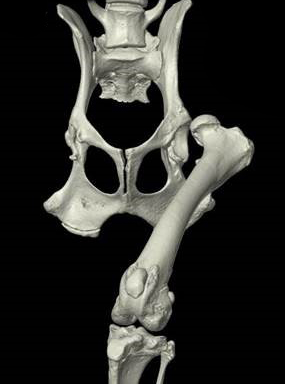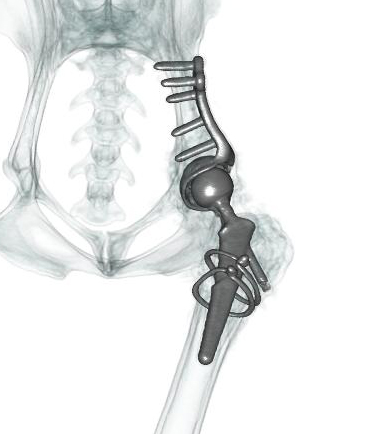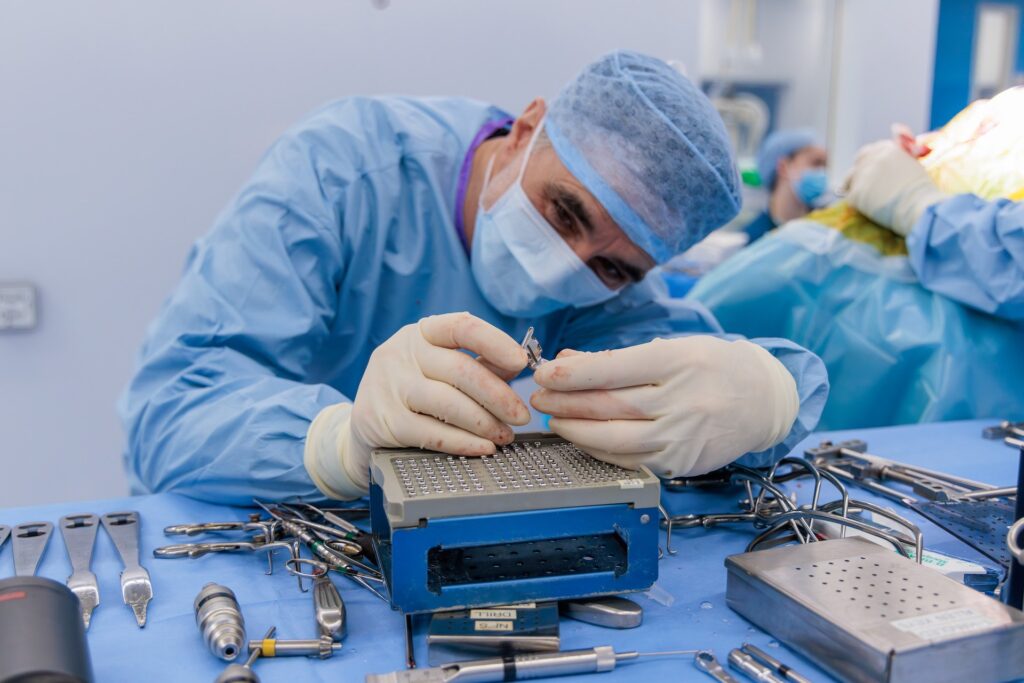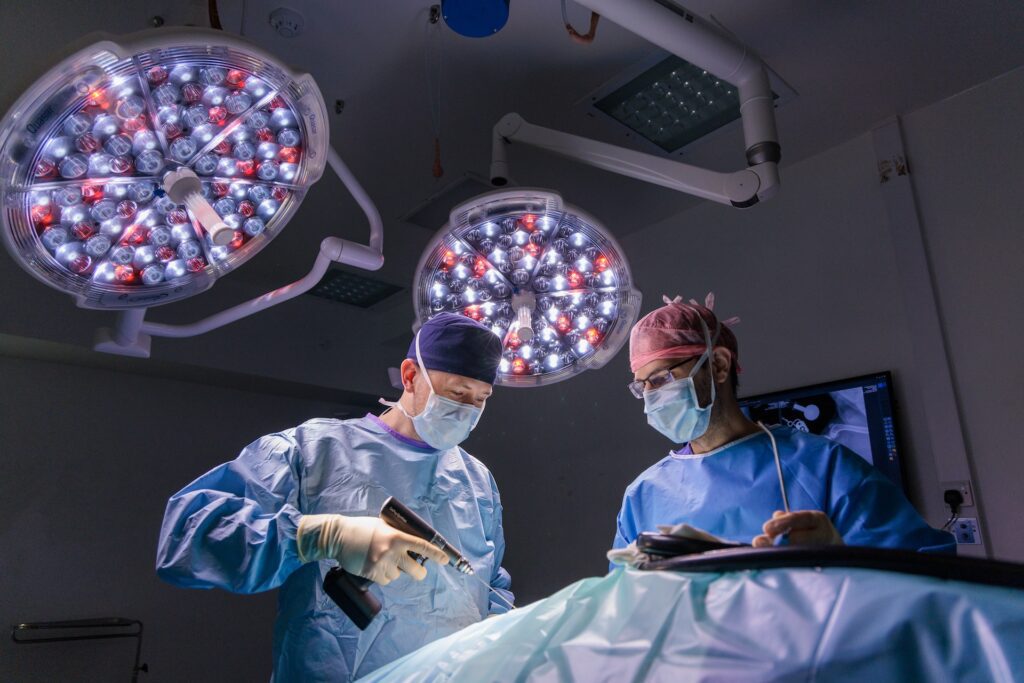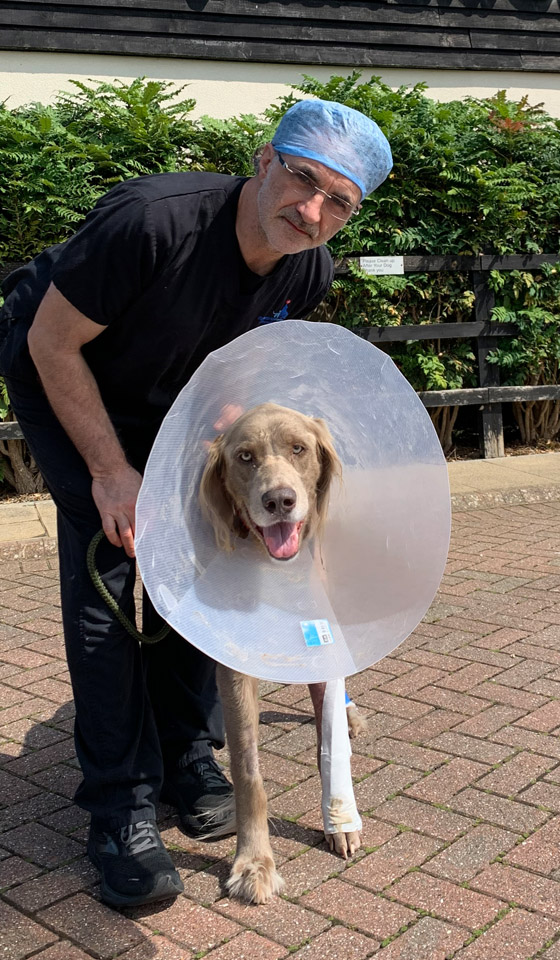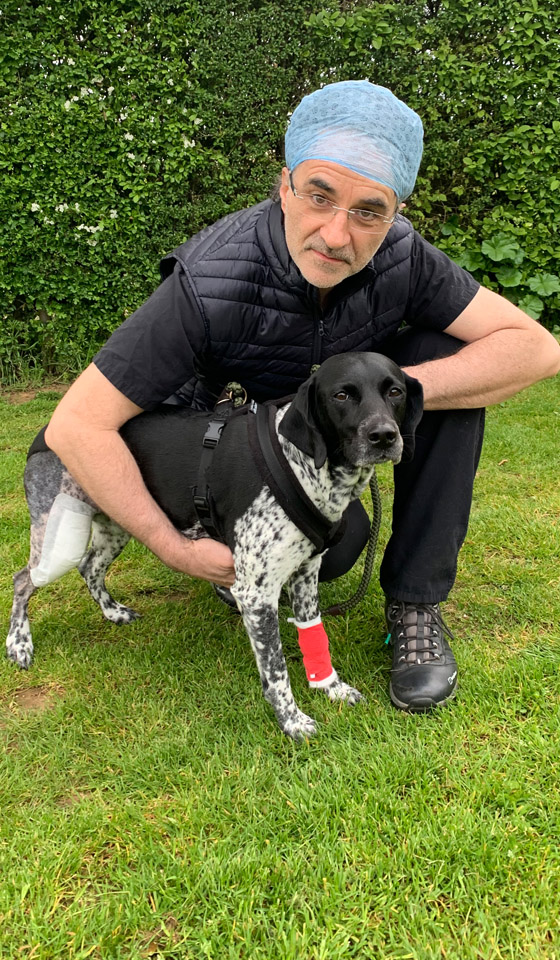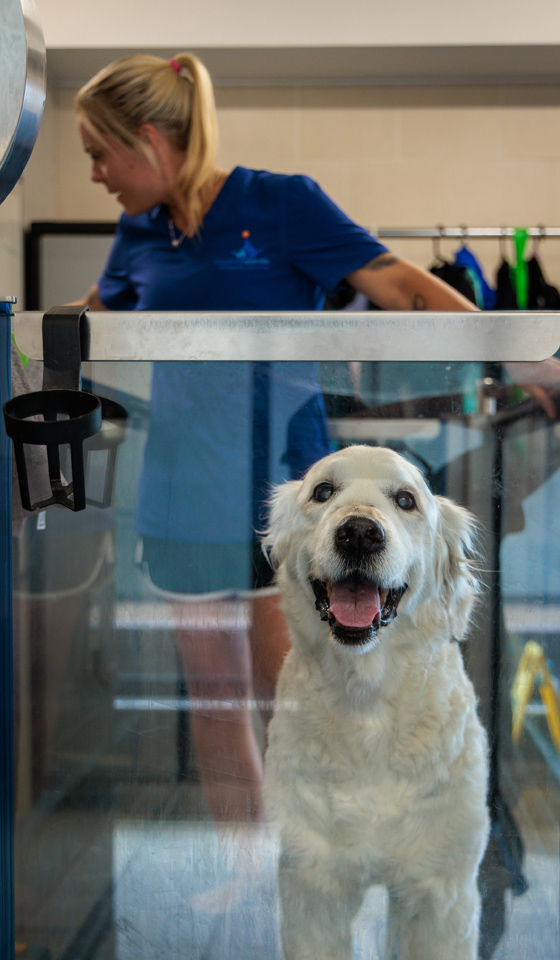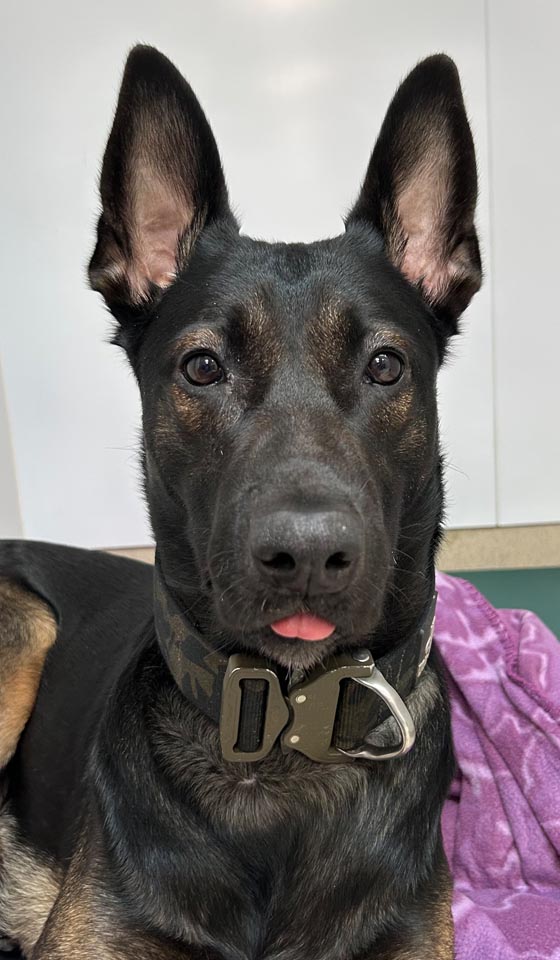Bran was adopted by Kasey and Joey, who wanted to give young Bran the best chance of a loving and happy life. Shortly after they brought him home, they noticed he was limping on his remaining back leg and eventually he could barely walk, dragging himself around using his front legs. The hip joint on his remaining back leg had dislocated and he was in severe pain. This presented everyone with a significant ethical dilemma. Some people told Kasey that she was ‘being cruel’ for not putting Bran to sleep.
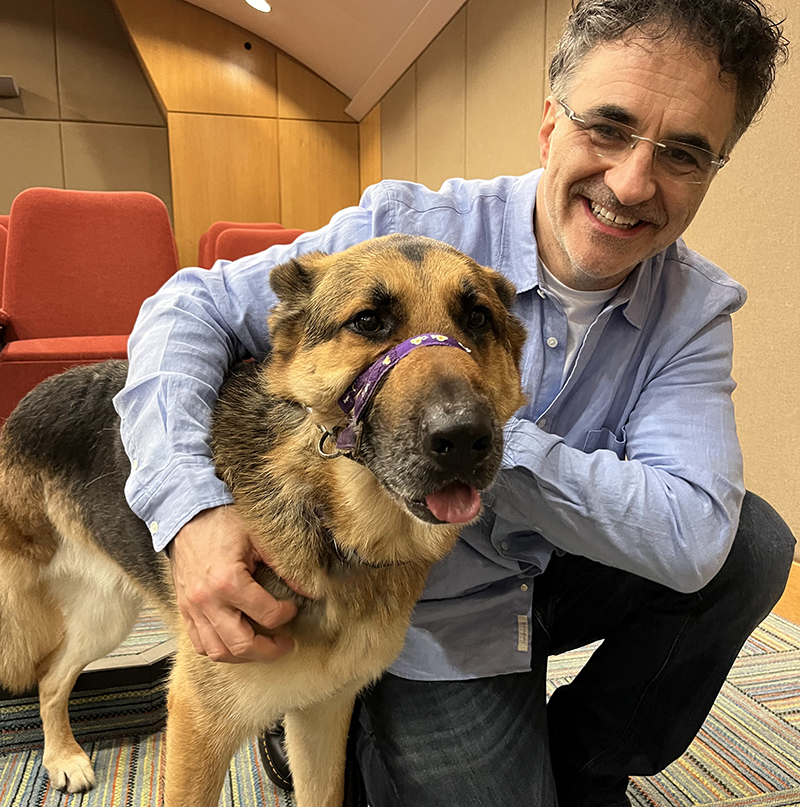
The problem
Bran was suffering from hip dysplasia, a condition where the hip socket and the femur don’t fit together properly. For Bran, the joint had dislocated completely, most likely due to his trauma. Because Bran only had one hind leg, his foot moved towards the centre of his body, pushing the top part of his femur even further out of the joint, plus the muscles were weak, so the head of the femur was likely to dislocate from any artificial socket we used.
Hope for Bran
A total hip replacement for Bran’s remaining diseased hip joint was entirely possible, and at Fitzpatrick Referrals we have performed it before on three-legged dogs, but because of the tilting of Bran’s pelvis and profound disease of the joint, keeping a new head securely in the socket would best be served by using a highly specialised customised implant system. We have invented such a system and have already used it on scores of patients successfully. The AceFitz™ (acetabular augmentation prosthesis) implant allows us to repair even the most loose hip joints where there are no sockets left.
Innovation and inspiration
Professor Noel Fitzpatrick got the idea from an ice cream scoop. The implant has a rounded cuplike shell covered in a special titanium mesh, attached to a long handle and coated in mineral dust, into which bone can permanently grow.
Surgery
In surgery, we drilled out the diseased cup of the socket and placed the new metal shell of the AceFitz™ into the deep bowl and attached the plate on to the ilium bone. We then inserted a plastic liner into the metal shell at the correct angle with cement. Then, we implanted a titanium mesh-lined stem in the top of the femur bone. This stem had a neck onto which we placed a large smooth metal head. Finally, we put the metal head into the plastic liner.
Bran was out of pain within a week and hasn’t looked back since, as he runs around fields and finally runs on the beach and into the sea, as Kasey had promised him. Through the love of his family and his determination and bravery, we hope he has many happy pain-free years ahead of him.
Bran inspires me every day and shows me that there is always the potential for happiness, no matter what the obstacles are.
Kasey
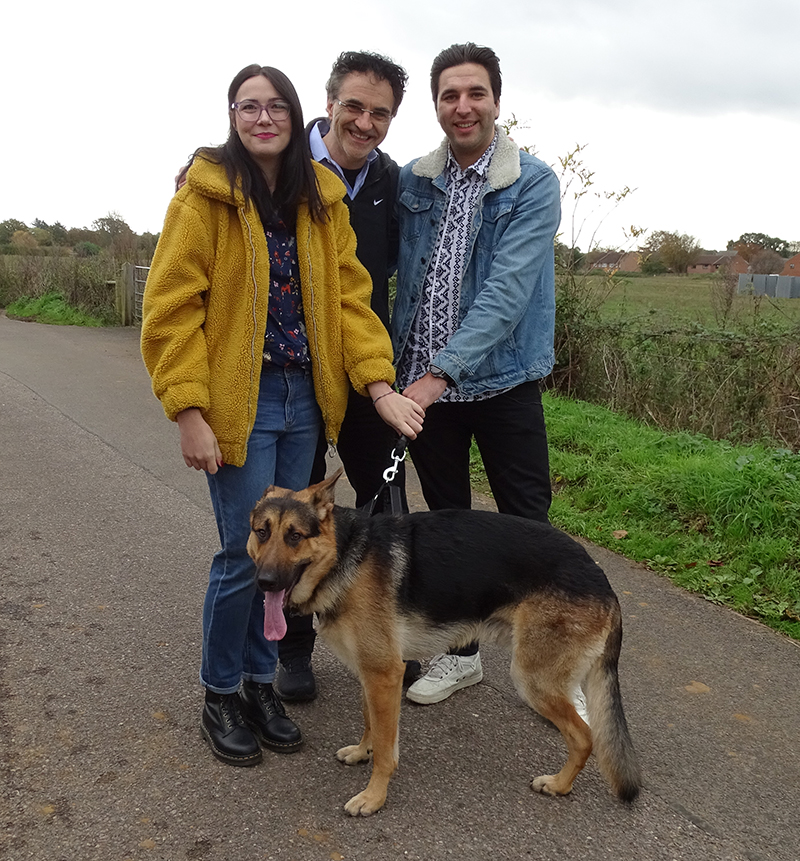
Related conditions
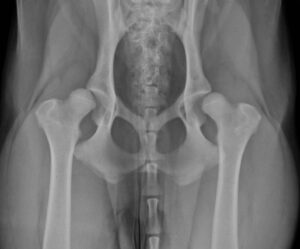
Hip dysplasia
The word “dysplasia” means “abnormality of development”. Hip dysplasia is a canine genetic condition in which there is a tendency towards development of hip…

Rehabilitation of hip dysplasia
Physiotherapy has an important role in the management of hip dysplasia. Whilst hip dysplasia is a progressive disease, the condition can be affected…
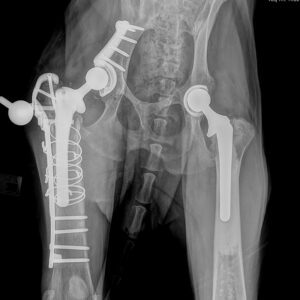
Total hip replacement
What is total hip replacement? Total hip replacement (THR) is reserved for animals that have painful conditions of the hip joint that have…
